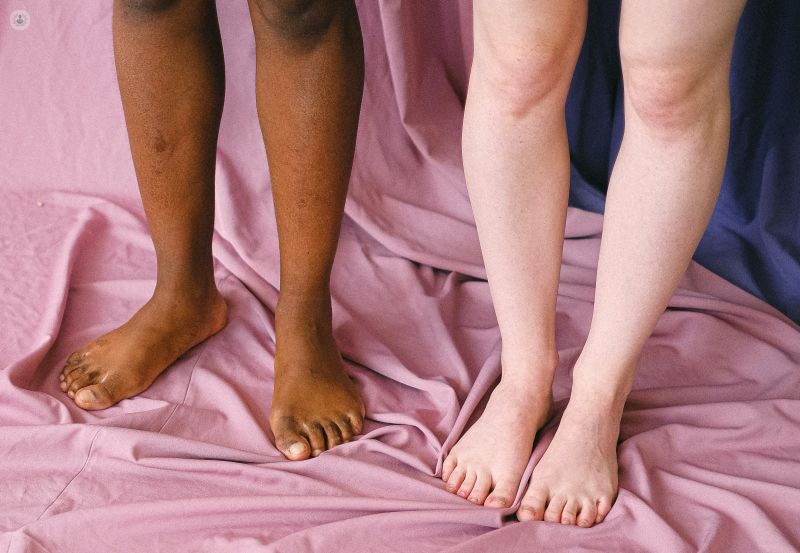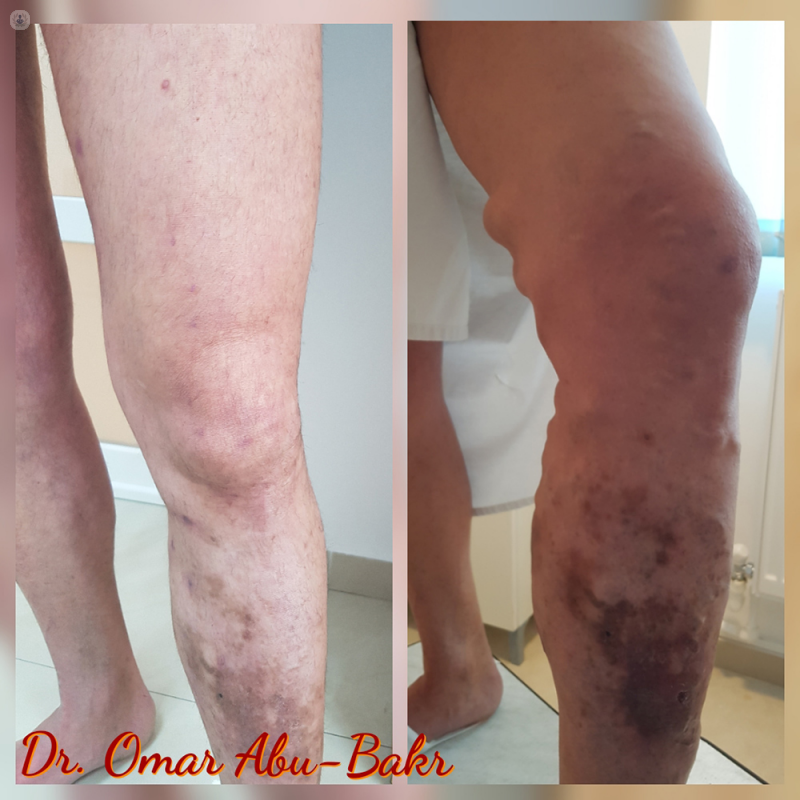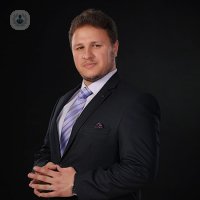What to expect during endovenous ablation of varicose veins
Written by:If you have been advised to undergo an endovenous ablation procedure to treat your varicose veins, you may be curious to know exactly what will happen during and after your procedure and whether or not it’s painful.
So we sat down with Mr Omar Abu-Bakr, a leading consultant venous surgeon, who walked us through the procedure step by step from preparation right through to aftercare. Here’s what he had to say.

What is endovenous ablation of varicose veins?
Endovenous ablation of varicose veins is a method to treat varicose veins. Using a catheter, targeted-energy is delivered to the affected veins to destroy them.
The type of energy used during the treatment depends on which is best suited to your particular case. One of the following will typically be used:
- Photo-energy (laser)
- Electromagnetic field (microwave)
- Ultrasound energy (high-intensity focused ultrasound, also known as HIFU)
- Radiofrequency
All these methods aim to make the cells composing the venous wall die naturally so that your body absorbs the veins afterwards.
How do I prepare before the procedure?
No special preparation is needed before the procedure and there is also no recovery time either. You are strongly asked to be active and walk normally after the treatment.
How is endovenous ablation performed and is it painful?
The procedure is carried out under local anaesthesia and takes roughly one hour. You will feel the needle and the anaesthetic being injected, however, after that you will only feel some light activity in the leg area, but no pain. The treatment is not painless, but it is much less painful than any other way of treating varicose veins.
After the local anaesthetic is administered, a Doppler ultrasound device is then used to make an image of the vein on a computer screen. Small cuts will be made and a catheter will be guided into the varicose vein. Energy will be sent through the catheter and into the vein. If the procedure is done correctly, it is simply an art and the recurrence rate is just 3%.

What happens after the procedure?
Immediately after the procedure, you will be able to walk, work, go shopping, etc. In fact, the very first advice I give to my patients is to walk, and that starts from the very first minute after the procedure. You will be able to return to normal immediately after the procedure and carry on with your usual daily activities and work. Approximately one out of ten patients will need a single dose of paracetamol.
What are the limitations of endovenous ablation of varicose veins?
The first step in treating varicose veins is to do a very thorough Doppler ultrasound scan. This scan, to be done correctly, takes about 40-60 minutes, and based on that, we can tailor the best treatment for each patient. There is no "golden method that works for all" but instead a treatment plan that is tailored to each patient and each leg.
The methods can vary between:
- Endovenous laser ablation
- High-intensity focused ultrasound
- Microwaves
- Ultrasound-guided foam
- Sclerotherapy
- Phlebectomies
- Microsclerotherapy
Usually, we use a combination of the above methods to create the best treatment plan for the case we are dealing with.
If you have varicose veins and are interested in this procedure, go to Mr Omar Abu-Bakr’s Top Doctors profile to book a consultation with him.


